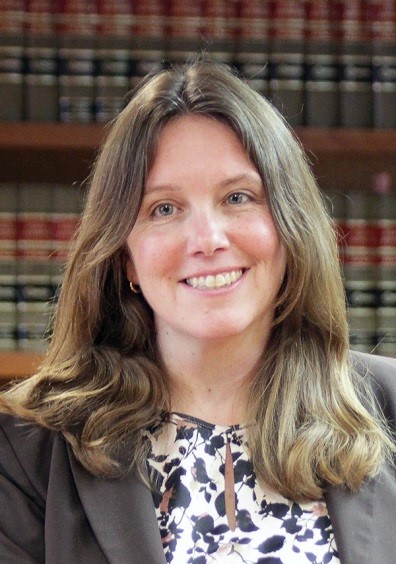Megan McDermott (2000-01)
Associate Teaching Professor, University of Wisconsin Law School

My clerkship year with Chief Justice Abrahamson was fascinating and challenging. It was fascinating because the Wisconsin Supreme Court has discretion over which appeals to hear. Every case the Court takes involves issues of first impression, with many important doctrinal and policy choices for the court to make.
It was challenging because the workload was intense. We had around 90 cases that term, and I was the only law clerk in the Chief’s chambers. We had a lot of help from interns, though. Working for Chief Justice Abrahamson taught me the meaning of hard work. She typically worked from 9 a.m. until midnight or even later, and she expected her law clerk to be working, too. After that experience, putting in the long hours expected as an associate in private practice was a breeze!
Chief Justice Abrahamson was a teacher at heart, and she brought an educator’s perspective to the entire court system. She was always looking for ways to show Wisconsinites how the justice system worked. She also made a point of writing and speaking about the law in ways that ordinary people could understand. I try to bring that down-to-earth quality into the classroom.
She was a great mentor to so many who came after her. She didn’t just shatter the glass ceiling. She also looked for ways to lift others through the gap.
The call to public service is a huge part of the Chief Justice’s commitment to building a justice system that works for the average Wisconsinite. Anyone who shared this commitment found encouragement and support in the Chief.
I remember many dinners together in chambers talking about cases or just life in general. She also hosted a small breakfast for Justice Scalia when he was visiting Madison that year–inviting a few of her colleagues on the Wisconsin Supreme Court, the Chancellor of UW, the local federal district court judges and me. What a group!
Favorite quote: “What does Bill Prosser have to say about this issue?” (William Prosser is one of the leading figures in tort law and also the co-author of an essential treatise on the subject. So questions like this would always send me scurrying to the law library.)
To me, this quote epitomizes the Chief’s approach to resolving cases. It wasn’t about deciding how she wanted to rule and then picking the law that got her there. It was about using expert sources to identify the doctrinal roots of a question and then following the doctrine wherever it led.
October 22, 2024 @ 6:48 am
Your comment is awaiting moderation.
Please tell me more about this. May I ask you a question?